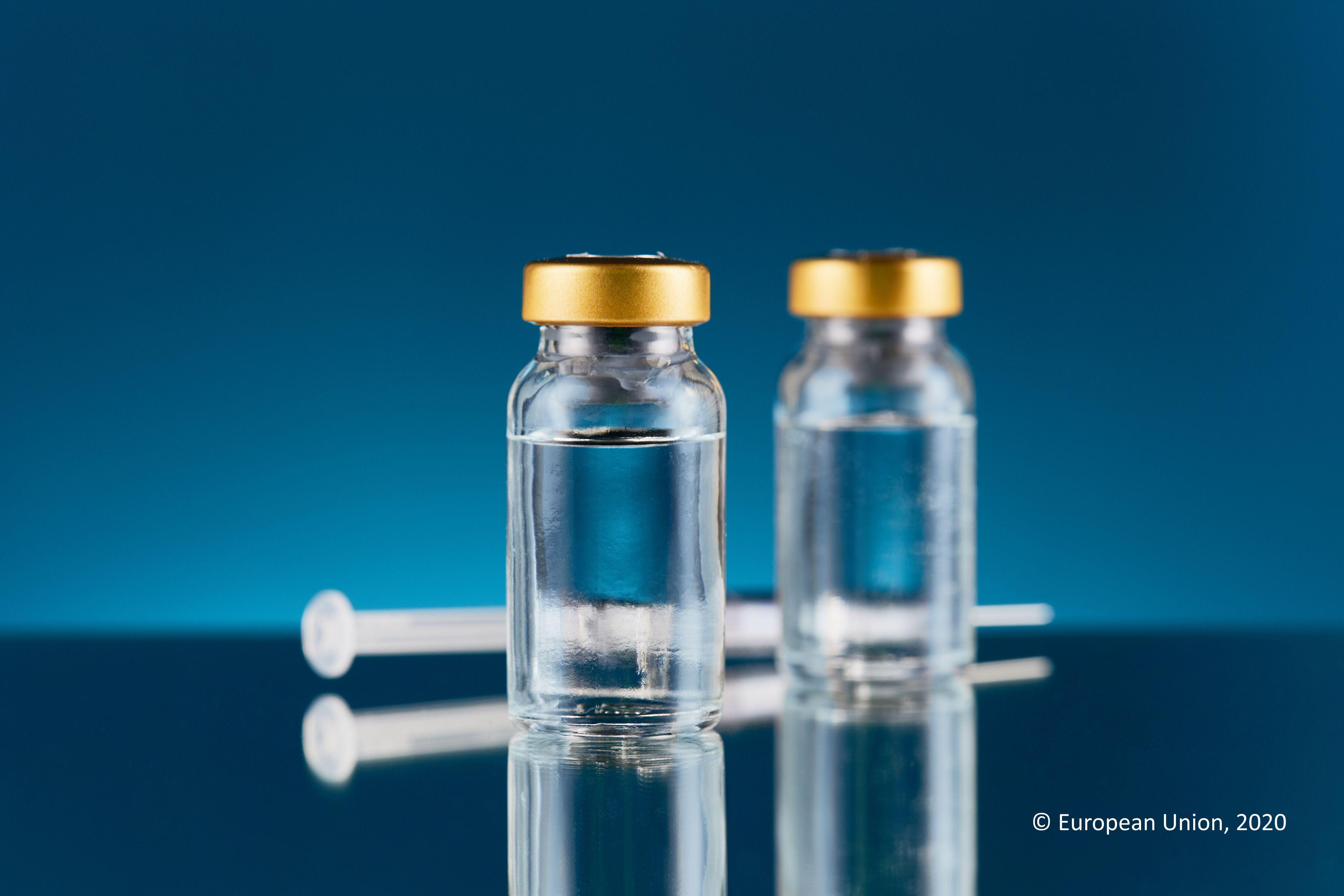Avoid risky contacts / AstraZeneca vaccine is good / Behaviour of the company is bad
“It is very important that we all understand: The virus does not care who is guilty for the shortage of the vaccine. It will spread if we do not avoid risky contacts”, insisted Dr med Peter Liese, health spokesperson of the largest political group in the European Parliament (EPP, Christian democrats). Liese asked everyone in the European Union to try to avoid the spreading especially of the new mutated virus by being disciplined. “We all can help, for example by meeting friends and others outside and not indoors. Going for a walk or enjoying a hot drink on the terrace is the better option. If you keep a distance and be outside, the virus has no chance”, says Liese. He also insisted that unnecessary traveling needs to be avoided and that people that definitely need to travel have to be tested carefully.
Concerning the approval of the vaccine from AstraZeneca, Liese insisted: “The AstraZeneca vaccine has not as good data as the vaccines from BioNTech/Pfizer and Moderna but still it is a good vaccine. In October, we would have been happy to have a vaccine that has an efficiency well above 50 %. WHO, EMA and FDA have set a threshold at 50 per cent and the AstraZeneca vaccine is definitely passing this threshold. It´s like in football: When Moderna and BioNTech/Pfizer are the finalist of the Champions League it is not that Barcelona or Juventus Turin are bad football teams. They are just not the number one and in October, we did not have even district league. There are also strong indications that the efficiency for elderly people is good. For example, they have a good immune response and no elderly person who was included in the clinical trials has suffered from serious conditions or was hospitalised. Unfortunately, there is a lack of data that would really guarantee 100 per cent that the vaccine works as good for the elderly as for younger people. That is why EMA and national authorities have to assess this and give a scientific recommendation.
So what is bad - and I say very very bad, - is the behaviour of the company. Obviously, AstraZeneca wants to treat citizens of the European Union as second-class citizens. They gave three different explanations in less than a week why there is a shortage of supply on the European continent and why they want to deliver only 31 million doses instead of 80 million that they committed to in the contract until the end of March. The first explanation was different supply chains. This is wrong because first, in the contract with the European Union, two plants in the UK are mentioned for the supply on the continent and at least until a few days ago the final finishing of the vaccine has been in a plant in Dessau, Germany. The second explanation was that there is also reduced supply for the UK and now they say that the UK has a better contract. To be honest, if a company treats European citizens as second class, this has serious consequences for the long-term cooperation of the EU with this company but also for the company’s economic future. Investors will not like that everyone in the biggest market in the world is mad with a company.
I am very happy that the European Commission and AstraZeneca are now in constructive talks and as far as I understood, there have already been positive achievements a few days ago, they announced that they would deliver only one badge of vaccines to the European countries in February and this would only start two weeks after the marketing authorisation. Obviously now, it is planned to have three deliveries and already starting one week after the approval. It is important to remember that BioNTech/Pfizer got market approval on December 21 and the vaccination started on December 27. Therefore, they managed it in less than a week, over Christmas, and this is the benchmark”, the doctor and MEP says.
Finally, Liese expressed his hope that in the next days, the company Johnson & Johnson will publish their data on the effectiveness of their vaccine. “If the data are good, and I have no reason to believe that they are not, we have a fourth vaccine and the advantage here is that it has to be administered only once. Of course the data of the company has to be checked carefully. The approval process will take some weeks but I am quite optimistic that in spring, the Johnson & Johnson vaccine will help a lot. The EU has ordered 200 million doses and another option of 200 million doses”, concludes Liese.


